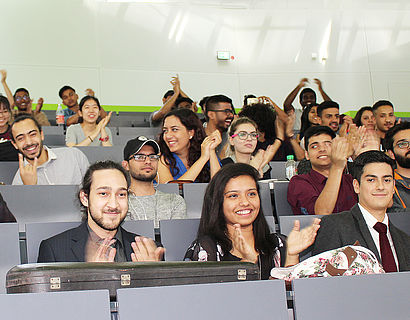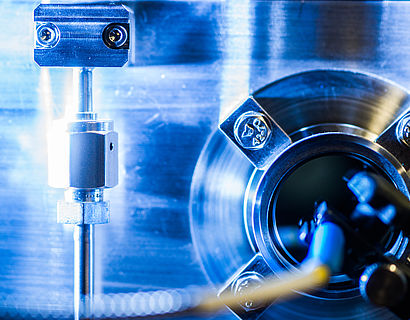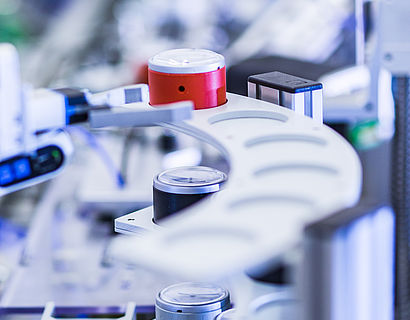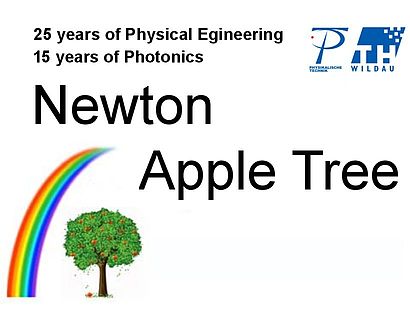Key facts
|
Degree |
Bachelor of Engineering |
|---|---|
|
Language of instruction |
German |
|
Modes of study |
full-time, part-time, dual degree |
|
Standard duration |
6 semesters |
|
Programme start |
winter semester |
|
Fees |
no tuition fees (the university only charges semester fees each semester) |
|
Application deadlines |
|
|
Faculty |
Study objectives
Building upon solid scientific and engineering principles, students are trained in the various fields of engineering and introduced to physics engineering and energy systems in a practical way that will prepare them for careers in the field. Elective modules give this degree programme flexibility. Graduates will be able to efficiently solve a wide range of problems in these fields. They will have the ability to work in multiple disciplines, to combine the latest technologies with classic fields of engineering as well as integrate computer and simulation technologies into their work. Independence, holistic thinking in technical and business contexts, teamwork abilities and social skills are also developed.
Course contents
- Fundamentals of science of engineering
- In-depth study of physical technologies and energy systems
- Multidisciplinary studies, projects and lab work
- Industrial and career placement, bachelor's thesis
Programme modulesOpen areaClose area
- Mathematics I
- Mathematics II
- Statistics
- Basics of Physics
- Basics of Chemistry
- Informatics I
- Informatics II
- Materials
- Construction Fundamentals
- Manufacturing Methods
- Statics
- Materials Mechanics
- Electrical Engineering/ Electronics/ Drive Technology
- Control Technology/ Sensors
- Automation Technology
- Thermodynamics/ Heat Transfer
- Fluid Mechanics
- Physics
- Struktur of Matter
- Surface Technologies
- Mikro-/ Nano-engineering
- Laser Technologies
- Plasma Technologies
- Photonics/ Technical Optics/ Spectroscopy
- Microprocessor Engineering
- Renewable Energy
- Quality Management
- Business Management and Law
- Laser/ Plasma Technologies
- Semiconductor Technology/ Surface Analysis
- Electron Beam Microanalysis
- Optical Design
- Data Collection/ Control and Microcontroller
- Nuclear Engineering and Dismantling
- Renewable Energy in Buildings and Energy Efficiency
- Electromobility
- Environment and Life Cycle Analysis
- Legal Aspects of Renewable Energies
Career opportunitiesOpen areaClose area
Graduates of the Physics Engineering/Energy Systems degree programme can find work in the industrial sector as well as in small to medium-sized businesses.
- Development engineers in project planning and production
- Technical consulting, support and sales
- Work in the automation technology sector
- Tool building
- Servicing
Engineers in physics engineering/energy systems are also needed in public services, institutions and hospitals.
Admission requirements and applicationOpen areaClose area
General admission requirements
Admission qualifications Application
You can apply to TH Wildau online. All the information you need to apply can be found on our central application page.
Preparation courses
We recommend checking in good time as to whether it is useful for you to participate in study preparation courses (in German) prior to commencing your studies. Online tests in the subjects of mathematics, physics, information technology and technical mechanics will help you come to a decision. Prior knowledge in these subjects is an important basis for various study modules and therefore necessary for the success of your studies in light of past experience.
Offers and further information
Matching master's programs at the TH Wildau








